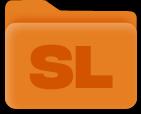
Skip to
Stalin, Mao and the Chinese Intervention in the Korean War (1950-53)
Table of content
Abstract
The Korean War was the first hot conflict in the Cold War, beginning with the North Korean invasion of South Korea in June 1950 and ending in an armistice in 1953. Although being 59 years since its end, there are many questions related to the Korean War which has been left unanswered or widely debated due to the closed archives in China and North Korea. This extended essay focuses on the causes of the Chinese intervention in the Korean War by looking at four telegrams between Mao and Stalin dated 1 October to 7 October 1950 chronologically, and considers this question: To what extent do the telegrams between Joseph Stalin and Mao Zedong dated 1 October 1950 to 7 October 1950 reflect on their policies towards a Chinese intervention in the Korean War? Also a number of second-hand sources will be used to present various interpretations.
This analysis shows that Mao first refused Stalin’s request for a Chinese intervention, despite favouring such an intervention. Various interpretations are presented, but the main reason for Mao’s refusal was found to be disagreements in the Chinese politburo. Stalin replied in an aggressive tone, most likely due to a combination of pessimism and disbelief. Stalin firmly believed that a Chinese intervention would be the only effective countermeasure against the advancing UN forces. In the final telegram, though, Mao agrees with Stalin and chooses to intervene after all.
The conclusion of this analysis is that the telegrams to a great extent reflect Stalin’s and Mao’s policies. Evidence proves that they were both agreeing on a Chinese intervention, but due to the disagreements in the Chinese leadership, Mao was initially forced to reject Stalin’s request. This changed rapidly, however, as it was already decided on 2 October that China was to intervene.
